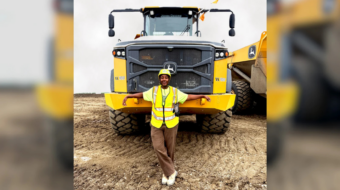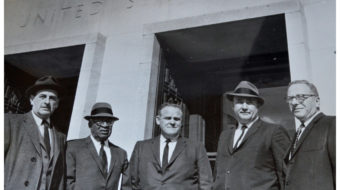
The strike launched Sept. 4 by the Machinists against Boeing, the nation’s largest airplane maker, shows perhaps as well as anything else the rising tide of anger among American workers and their determination to fight.
The strike, now going into its second month, has become what observers see as one of the most important labor battles in recent history. The 27,000 workers who are out on the picket line have been demanding not just a fair share of the profits they create but major agreements from the company in the areas of job security, affordable health care and fair pensions. The strike, according to analysts, has thus far cost the company $2,359,953,800 in sales. Boeing last year made $100 million in sales per day.
No talks have taken place since the Sept. 4 walkout.
The absence of job security language was a key reason why members rejected the company’s offer and it is why Boeing is now facing the second major strike in three years. “We learned it’s not enough to have a good paying job if that job can disappear at any time,” said IAM President Thomas Buffenbarger.
While Boeing has made $13 billion in profits since 2002, union leaders say the aerospace company is refusing to give workers a 30-cent an hour cost of living increase to keep up with inflation. Eighty-seven percent of the workers voted to strike when the contract expired Sept. 4.
The company’s increasing reliance on outsourcing has fueled the workers’ heightened concern about job security.
Workers on the picket lines at Boeing facilities in Washington, Oregon and Kansas point to the 787 Dreamliner program as an example of what they are fighting. Boeing is using suppliers from places such as Japan and Italy to build much of the fuel-efficient new jetliner, with Boeing performing final assembly.
The plan backfired when the suppliers fell behind, and the 787 program is now more than a year behind schedule. Boeing was forced to turn to its own union workforce to piece together the first few airplanes after they arrived at the company’s factory in Everett, Wash., with thousands of missing parts.
“If Boeing had let us build that airplane in the first place, it would be in service today,” said Dale Flinn, a 20-year veteran on Boeing’s assembly line, as he spoke recently with reporters.
Support for the strike and the picket lines is solid at all of the Boeing facilities in the country. Thousands of workers, along with friends and family, staged massive barbecues last weekend outside plant gates in Kansas, Oregon and Washington State.
State legislators and members of Congress who were backed by the Machinists in their election campaigns showed up to join the festivities.
Many observers of the labor scene have noted the high degree of militancy in the strike, particularly for workers who, for the most part, make above the average wage and have benefits better than those enjoyed by many other workers.
For the workers, at a time of economic crisis, to be willing to risk these, they say, shows true grit.
The strike also underlines corporate greed, they note, because Boeing, despite record profits, still seeks to weaken the union and chip away at job security and healthcare guarantees.
The strike, they also say, shows a determination by workers to halt corporate moves to shift production and jobs overseas.
jwojcik @pww.org









